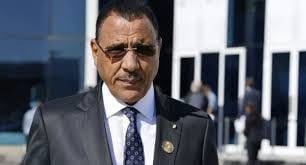UN Panel demands release of Niger’s Former president Bazoum
The United Nations Working Group on Arbitrary Detention (UN WGAD) has called for the immediate release of Niger’s former president Mohamed Bazoum and his wife, Hadiza, stating that their detention violates international human rights law.

The United Nations Working Group on Arbitrary Detention (UN WGAD) has called for the immediate release of Niger’s former president Mohamed Bazoum and his wife, Hadiza, stating that their detention violates international human rights law. The UN panel’s findings, cited in a Human Rights Watch (HRW) report and confirmed by AFP, stress that Bazoum’s imprisonment is arbitrary and lacks any legal basis under Nigerien law, making it a direct consequence of the 2023 coup that ousted him.
According to the UN WGAD, his detention contravenes Article 9 of the International Covenant on Civil and Political Rights (ICCPR), which guarantees the right to personal liberty and a fair trial. Niger is a party to this treaty, and the panel insists that the ruling junta must cooperate with the UN to free Bazoum and any other individuals held without due process. His legal team has echoed the UN’s demand, reinforcing growing international pressure on Niger’s military leadership.

Since the coup, Bazoum has been held incommunicado with restricted access to the outside world. His situation worsened in June 2024 when a junta-backed court stripped him of presidential immunity, opening the door for a potential trial, though no date has been set. The United Nations’ latest call for his release amplifies scrutiny on Niger’s human rights record and raises concerns about the rule of law under military rule.
If the junta refuses to comply, it could face international legal repercussions, including sanctions and further diplomatic isolation. Niger’s withdrawal from the Economic Community of West African States (ECOWAS) in February 2025 has already strained its international relations. Ignoring the UN’s directive could further damage its standing under international law, particularly regarding human rights and the ICCPR.














